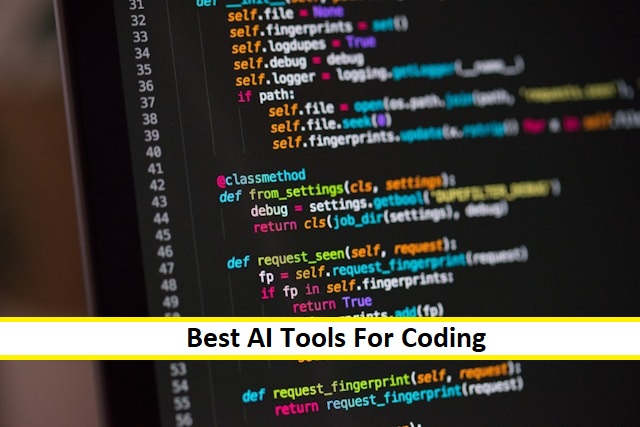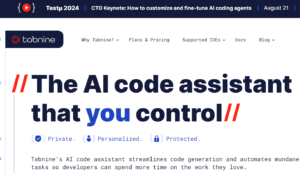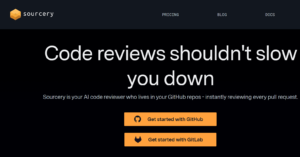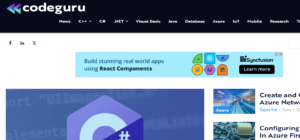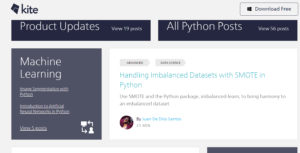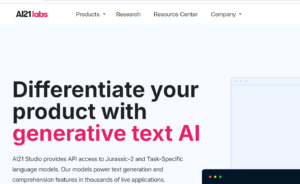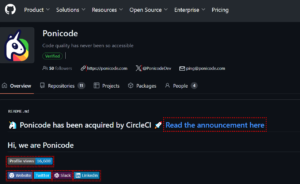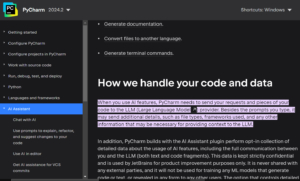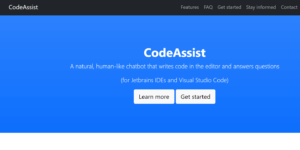Artificial Intelligence (AI) is transforming the coding landscape by automating repetitive tasks, enhancing productivity, and elevating code quality. From AI-driven code generation to intelligent error detection, these tools are designed to support developers and software engineers in their coding endeavors. This article explores the best 12 AI tools for coding, highlighting their features and ideal use cases. Whether you’re searching for tools similar to ChatGPT for coding assistance or seeking recommendations from Reddit on the best AI tools for programmers, this guide has you covered.
Criteria for Evaluating AI Coding Tools
When selecting the best AI tools for coding, consider the following criteria:
- Key Features and Functionalities: Evaluate tools based on their core features, such as code generation, error detection, and integration capabilities.
- Integration with Development Environments: Ensure that the tool integrates seamlessly with your preferred IDE or development environment.
- Impact on Productivity and Code Quality: Assess how the tool enhances your workflow and improves the quality of your code.
Top Features to Look for in AI Coding Tools
- Automation Capabilities: Look for tools that automate repetitive tasks such as code generation, error detection, and bug fixing.
- Code Quality Enhancement: Features that assist with code optimization, refactoring, and adherence to coding standards are crucial for maintaining high-quality code.
- Integration with Development Environments: Seamless integration with popular Integrated Development Environments (IDEs) and version control systems enhances productivity and ensures smooth workflows.
Best AI Tools For Coding
1: GitHub Copilot
GitHub Copilot, powered by OpenAI’s Codex, provides context-aware code completions and suggestions. It supports multiple programming languages and offers real-time code assistance directly within the IDE.
Ideal Use Cases: Best for developers and software engineers seeking an AI-driven assistant for code completion and rapid coding.
2: TabNine
TabNine uses deep learning to offer intelligent code completions and snippets based on your coding patterns. It integrates with various IDEs to provide predictive text features that enhance coding efficiency.
Ideal Use Cases: Ideal for programmers looking for a powerful code completion tool that adapts to their coding style.
3: DeepCode
DeepCode performs static code analysis to identify potential bugs, security vulnerabilities, and code quality issues. It provides actionable recommendations for improving code.
Ideal Use Cases: Perfect for software engineers focused on maintaining high code quality and security standards.
4: Sourcery
Sourcery specializes in Python code refactoring. It offers automated suggestions for improving code readability, performance, and adherence to best practices.
Ideal Use Cases: Best for Python developers seeking to enhance code quality and simplify code maintenance.
5: CodeGuru
Amazon CodeGuru provides automated code reviews and performance recommendations. It integrates with AWS services to analyze code for best practices, security vulnerabilities, and optimization opportunities.
Ideal Use Cases: Suitable for developers working with AWS, offering insights into code performance and security improvements.
6: Kite
Kite is an AI-powered coding assistant that offers intelligent code completions and inline documentation. It supports multiple programming languages and enhances the coding experience with real-time assistance.
Ideal Use Cases: Ideal for developers who need a coding assistant that integrates with popular IDEs and provides context-aware code suggestions.
7: Codex
Codex, the AI model behind GitHub Copilot, excels in generating code snippets from natural language descriptions. It is capable of understanding and executing complex coding queries.
Ideal Use Cases: Great for developers who want to experiment with advanced AI for code generation and pattern recognition.
8: AI21 Labs’ Studio
AI21 Labs’ Studio offers a range of AI tools for code generation and natural language processing. It supports various programming languages and provides advanced features for code analysis and generation.
Ideal Use Cases: Best for developers seeking a comprehensive AI toolset that includes code generation and language processing capabilities.
9: Ponicode
Ponicode uses AI to automate unit test creation and evaluate code coverage. It helps developers ensure their code is well-tested and reliable by providing automated test generation.
Ideal Use Cases: Perfect for developers focused on test-driven development and code quality assurance.
10: PyCharm with AI Integration
PyCharm offers AI-powered features through integrations and plugins that enhance code completion, refactoring, and error detection. It provides a more intelligent and responsive development experience.
Ideal Use Cases: Best suited for Python developers who use PyCharm and want to leverage AI to improve their coding workflow.
11: Replit
Replit offers AI-driven code completion and collaborative coding features. Its in-browser coding environment includes tools for real-time collaboration and code suggestions.
Ideal Use Cases: Ideal for developers and programmers who need an integrated, collaborative coding environment with AI-enhanced features.
12: CodeAssist
CodeAssist provides AI-powered code assistance and generation. It supports various languages and integrates with multiple IDEs to enhance coding efficiency and productivity.
Ideal Use Cases: Best for developers looking for an all-in-one AI tool that offers code assistance and generation across different programming languages.
Comparison of the Top 12 AI Coding Tools
Side-by-Side Comparison of Features: Comparing these tools reveals their specific strengths: GitHub Copilot and TabNine excel in code completion, DeepCode and Sourcery focus on code quality and refactoring, while CodeGuru and Ponicode provide performance and testing insights. Tools like Kite and Codex offer advanced code assistance and generation capabilities.
Strengths and Weaknesses of Each Tool: Each tool has unique advantages—GitHub Copilot for its integration with natural language queries, DeepCode for its thorough code analysis, and PyCharm’s AI features for Python development. The choice of tool depends on individual needs and development environments.
Future Trends in AI Coding Tools
Emerging Technologies and Advancements:
The future of AI coding tools includes advancements in natural language understanding, real-time code optimization, and enhanced integration with development environments. Emerging technologies are expected to make coding even more intuitive and efficient.
Predictions for the Future Impact on Software Development:
AI is likely to continue revolutionizing software development by further automating coding tasks, improving code quality, and accelerating development cycles. As AI technology evolves, its impact on the software industry will grow, making coding more accessible and efficient.
FAQs
Why should I use AI tools for coding?
AI tools can help improve coding efficiency by automating repetitive tasks, suggesting code snippets, and detecting bugs early. They can also provide insights and recommendations, which can be particularly beneficial for both novice and experienced programmers.
Are AI tools for coding suitable for beginners?
Yes, many AI tools are designed to be user-friendly and can be especially helpful for beginners. They can provide real-time suggestions, code completions, and explanations, which can accelerate the learning process.
Can AI tools replace human programmers?
AI tools are designed to assist and augment the capabilities of human programmers, not replace them. While they can handle routine tasks and offer suggestions, human expertise is still crucial for complex problem-solving and creative decision-making.
Are there any free AI tools for coding?
Yes, several AI tools offer free versions or trials. These can be a good way to test the tool’s capabilities before committing to a paid plan. Examples include some features of GitHub Copilot and various open-source AI coding assistants.
What are some popular AI tools for code generation?
Some popular AI tools for code generation include GitHub Copilot, TabNine, and CodeWhisperer. These tools use machine learning algorithms to understand context and provide relevant code suggestions.
How do AI tools for coding handle security concerns?
Reputable AI tools adhere to strict security protocols to protect your code and data. They may include features such as encryption and secure cloud storage. Always review the tool’s security policies and practices before integrating it into your workflow.
Are AI tools for coding compatible with all programming languages?
While many AI tools support a wide range of programming languages, compatibility can vary. Check the tool’s documentation to ensure it supports the languages and frameworks you use.
How do AI tools for coding stay up-to-date with new technologies?
AI tools typically receive regular updates to incorporate the latest advancements in technology and programming practices. Developers and researchers continuously work on improving these tools to ensure they stay relevant and effective.
Conclusion
AI tools for coding are transforming how developers approach coding tasks, offering capabilities that enhance productivity, code quality, and overall efficiency. By exploring the best AI tools for coding like ChatGPT and those recommended on Reddit, developers can find tools that suit their specific needs. Embracing these AI tools will streamline coding processes and open up new possibilities for innovation in software development.

